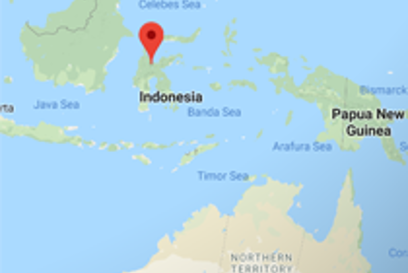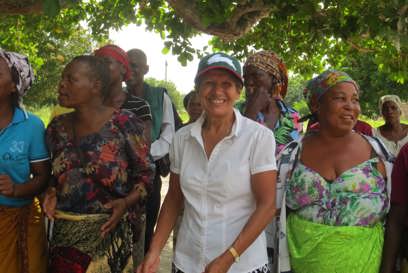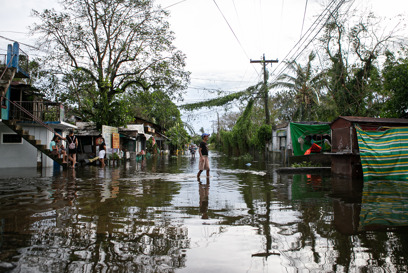Caritas Australia is excited to announce a new partnership with the innovative Aboriginal Carbon Foundation, an organisation that works with Indigenous communities to build sustainable economies through carbon farming.
One of the most common forms of carbon farming in northern Australia is the savanna burning method, which uses traditional cool burning practices to reduce greenhouse gas emissions and the severity of bushfires. This provides Indigenous communities with what are known as Australian Carbon Credit Units – which represent one tonne of carbon dioxide stored or avoided by the project – while protecting local environmental, social and cultural values.
The value of carbon farming practices like savanna burning could not be more evident only eighteen months after a devastating bushfire season in southern Australia, which saw over 3,500 homes lost and 18,636,079 hectares of land burned.
The Aboriginal Carbon Foundation has developed a nationally accredited training course to enable Indigenous carbon farmers to manage and lead their own carbon projects.
“Our training course means that First Australians will be able to own the whole process, from the beginning to end, and generate income for their specialised expertise and knowledge of the land,” said Rowan Foley, CEO of the Aboriginal Carbon Foundation.
“The communities we work with are very proud of the work that they’re doing in terms of looking after Country, but also knowing that it’s a viable carbon economy.”
The Aboriginal Carbon Foundation hopes to reach approximately 100 people in the first year of funding – to provide training using the peer to peer strengths-based approach which also qualifies verifiers to work with other carbon farming projects.
Over time, more communities will receive training and become able to generate their own income. This is significant in the Cape York region, where the 2016 Census showed that the median weekly household income is $961 – well below the national median weekly household income of $1,438. It also provides participants with the opportunity to take charge of their own projects, which promotes wellbeing and self-determination.
“What’s really wonderful about the Aboriginal Carbon Foundation is that they take a strengths-based approach to addressing Indigenous disadvantage and the impacts of climate change,” said Stephanie Lalor, First Australians Program Manager for Caritas Australia.
“It’s all about working with what is already there and listening to people and their vision for their communities, so that programs are sustainable and make a real difference.”
Media contact: Jessica Stone 0490 684 867 / jessica.stone@caritas.org.au
NOTE:
Rowan Foley, CEO of the Aboriginal Carbon Fund is available for interview.
Stephanie Lalor, First Australians Program Manager for Caritas Australia is available for interview.















